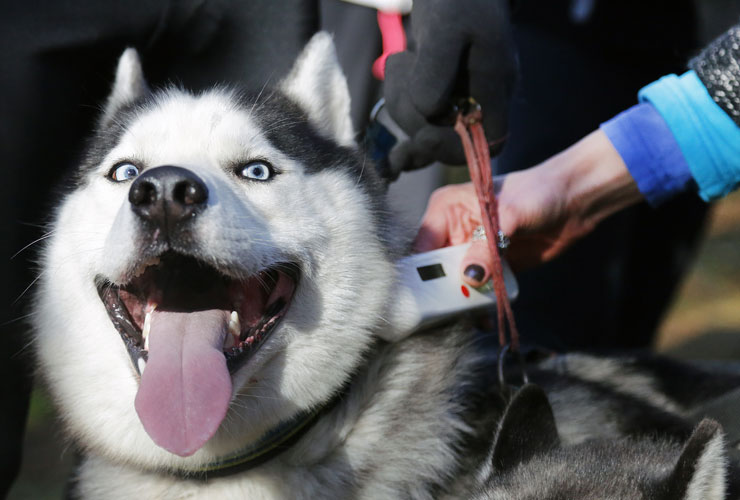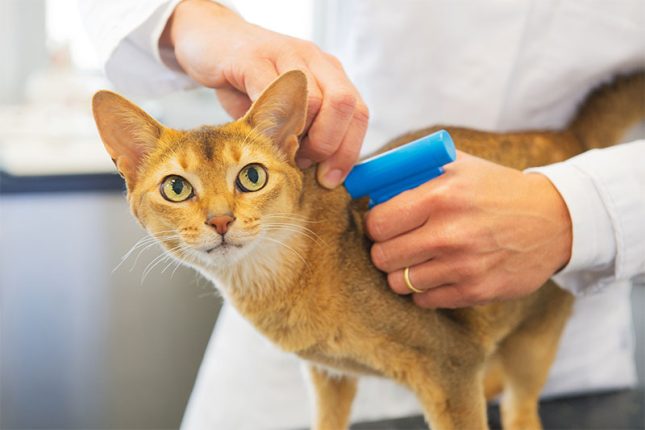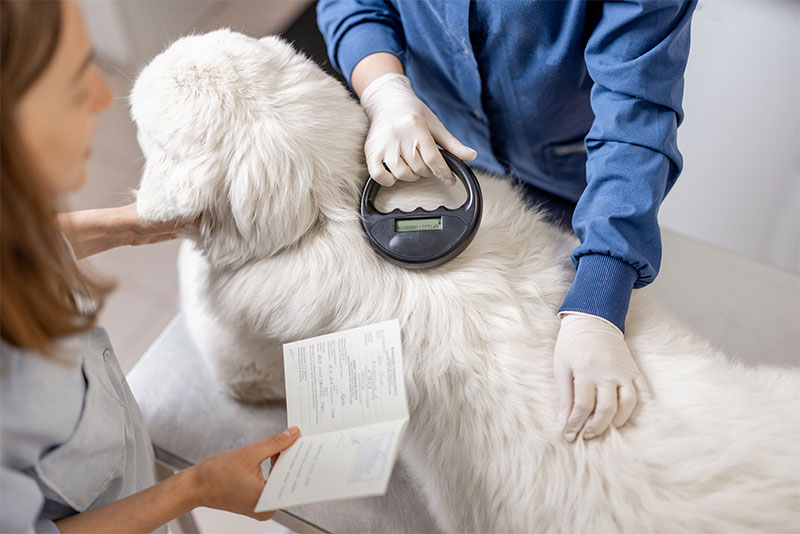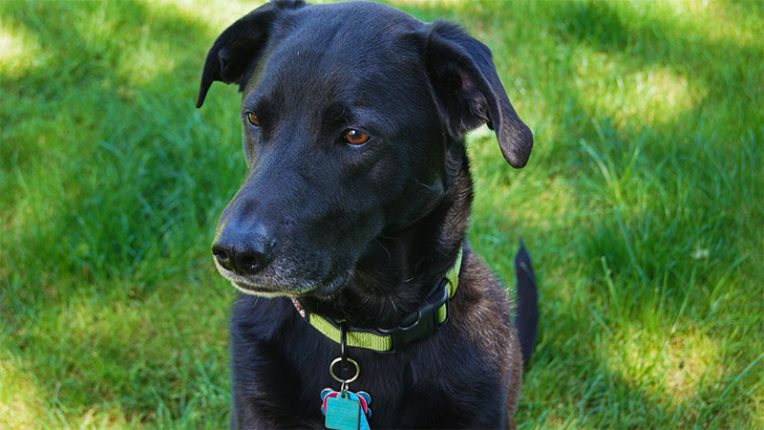
Everything to Know About Microchips for National Animal Safety and Protection Month
An estimated 10 million pets go missing each year in the United States. We provide our pets with collars and ID tags so that they are easily identifiable if they become lost. While we still recommend that pets wear collars and tags, this method of identification is not fail-safe. In honor of National Animal Safety and Protection Month in October, we’re helping to raise awareness about the importance of protecting your pets with pet microchips.

Pet Microchip FAQs

What Is a Pet Microchip?
A pet microchip is a rice-sized, radio frequency identification (RFID) device that functions as a permanent form of identification for just about any species of pet.
How Do Microchips Work?
Each microchip contains a single, unique number that is registered in a national database with the pet’s name and owner’s contact information.
A pet microchip is encased in a small biocompatible capsule that is inserted into a pet’s subcutaneous tissue. When scanned with a special microchip reader, the scanner will display the pet’s unique identifying number. The number can then be looked up in the database and the pet’s owners can be contacted.
Are Pet Microchips Really Effective?
Pet microchips are incredibly effective. They significantly increase the chances you will be reunited with your pet if they should become lost or stolen. According to a study of more than 7,700 animals in shelters published by the American Veterinary Medical Association:
- Just 21.9% of dogs without microchips were reunited with their families compared to 52.2% with microchips.
- Just 1.8% of cats without microchips were reunited with their families compared to 38.5% with microchips.
Microchips should not be used as a replacement for collars and ID tags, but the numbers clearly show how effective they can be.
What Is the Process of Getting a Pet Microchip?
The process of getting a microchip is simple and requires no anesthetic. Pet microchips are inserted using a hollow hypodermic needle. A pet might experience a slight pinching sensation similar to getting a vaccination. Otherwise, the process is pain-free.
Get a Microchip for Your Pet DuringNational Animal Safety and Protection Month
If your pet has yet to get a microchip, we encourage you to schedule an appointment with Dr. John Lewis at Eastwaye Veterinary Clinic in Goldsboro. We can provide your pet with a microchip and guide you through the simple process of registering your name and contact information with your pet’s permanent ID number. To learn more or schedule an appointment, please contact our office today.




